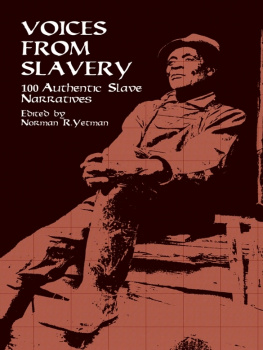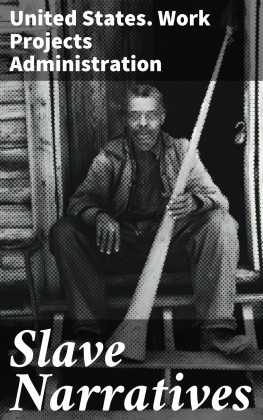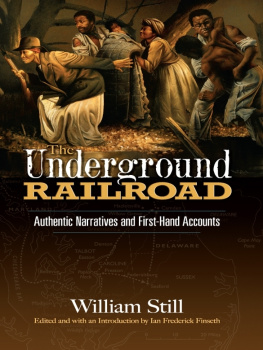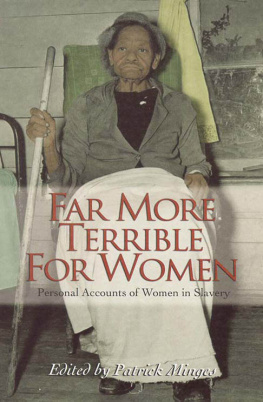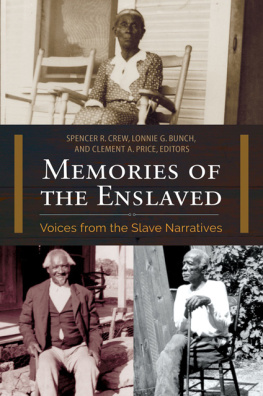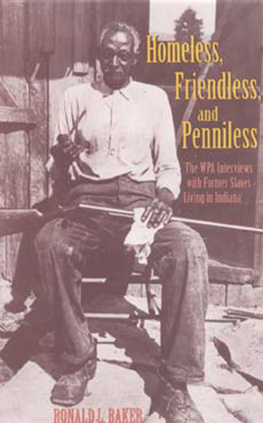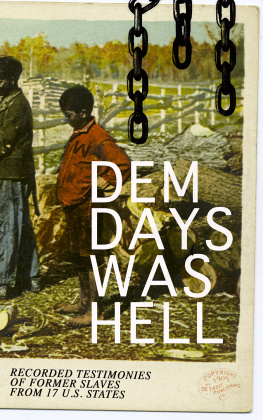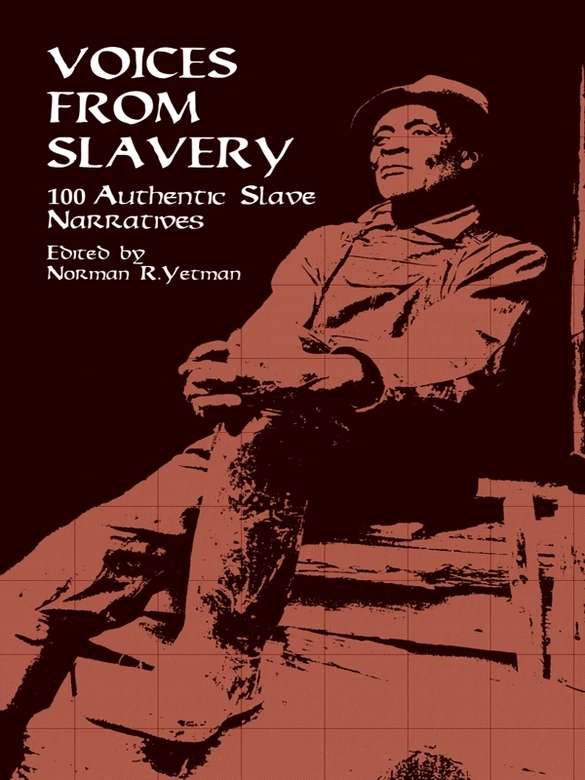Norman R. Yetman - Voices from Slavery: 1 Authentic Slave Narratives
Here you can read online Norman R. Yetman - Voices from Slavery: 1 Authentic Slave Narratives full text of the book (entire story) in english for free. Download pdf and epub, get meaning, cover and reviews about this ebook. year: 2012, publisher: Dover Publications, genre: Romance novel. Description of the work, (preface) as well as reviews are available. Best literature library LitArk.com created for fans of good reading and offers a wide selection of genres:
Romance novel
Science fiction
Adventure
Detective
Science
History
Home and family
Prose
Art
Politics
Computer
Non-fiction
Religion
Business
Children
Humor
Choose a favorite category and find really read worthwhile books. Enjoy immersion in the world of imagination, feel the emotions of the characters or learn something new for yourself, make an fascinating discovery.
- Book:Voices from Slavery: 1 Authentic Slave Narratives
- Author:
- Publisher:Dover Publications
- Genre:
- Year:2012
- Rating:3 / 5
- Favourites:Add to favourites
- Your mark:
Voices from Slavery: 1 Authentic Slave Narratives: summary, description and annotation
We offer to read an annotation, description, summary or preface (depends on what the author of the book "Voices from Slavery: 1 Authentic Slave Narratives" wrote himself). If you haven't found the necessary information about the book — write in the comments, we will try to find it.
In candid, often blunt narratives, elderly former slaves recall what it was like to wake before sunrise and work until dark, enduring whippings, branding, and separations from ones spouse and children, suffer the horrors of slave auctions and countless other indignities, and finally to witness the arrival of Northern troops and experience the first days of ambiguous freedom.
Included here are vivid descriptions of good masters and bad ones and treatment that ran the gamut from indulgent and benevolent supervision to the harshest exploitation and cruelty. These and many other unforgettable sometimes unspeakable aspects of slave life are recalled in simple, often poignant language that brings home with dramatic impact the true nature of slavery. Accompanied by 32 starkly compelling photographs, the text includes a new preface and additional essay by Norman R. Yetman, a specialist in American studies.
A valuable resource for students and scholars of African-American history, this thoroughly engrossing book will be of great interest as well to general readers.
Norman R. Yetman: author's other books
Who wrote Voices from Slavery: 1 Authentic Slave Narratives? Find out the surname, the name of the author of the book and a list of all author's works by series.

